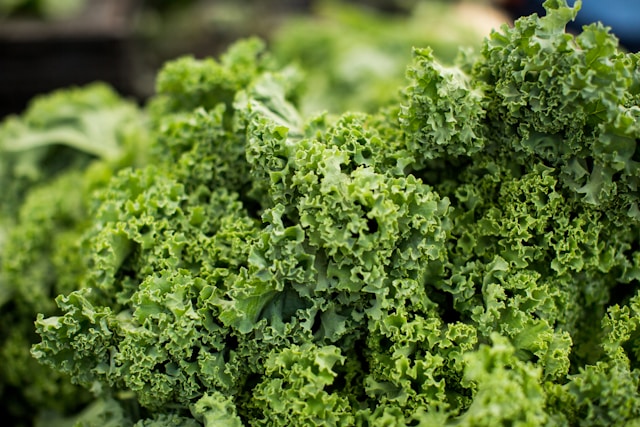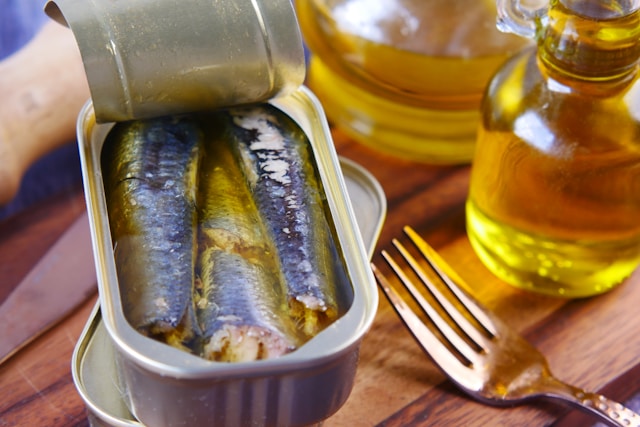Uncovering the Surprising Benefits of Cinnamon: A Powerful Superfood
August 21, 2022

For millennia, herbs and spices have been used not only for culinary but for medical purposes as well. Spices have been known to prevent both acute and chronic illnesses in addition to improving the color, aroma, and flavor of various foods and beverages. The benefits of cinnamon have been studied extensively.
More and more individuals are thinking about using spices and herbs as medicines, treatments, and remedies, particularly for a variety of chronic ailments. There is now plenty of proof that spices and herbs have cognitive and mood-affecting properties in addition to antioxidant, anti-inflammatory, antitumorigenic, and cholesterol and glucose-lowering properties.
Through its bioactive components, such as alkaloids, tannins, sulfur-containing compounds, phenolic diterpenes, and vitamins, especially flavonoids and polyphenols, research over the past ten years has revealed a wide variety of health benefits of cinnamon.
Due to their high phenolic component content, spices and herbs including cinnamon, clove, rosemary, sage, and oregano make great sources of antioxidants. It has been observed that regularly eating spicy meals decreased the risk of death from cancer, ischemic heart disease, and respiratory illnesses.

What is Cinnamon?
The bark of numerous species of the evergreen trees in the laurel family's Cinnamomum genus is the source of cinnamon, an ancient spice. Although cinnamon is grown all throughout Asia, Europe, and North America, its native countries are Sri Lanka and China, where it is the most widely consumed variety.
It is quite light in color when harvested, and as it dries, it turns dark brown. After that, it is powdered. The numerous cinnamon species come from distinct cinnamon trees, all of which belong to the Cinnamomum genus.
The history and the earliest use of Cinnamon
One of the earliest spices to be traded is thought to have been cinnamon in the ancient world. The benefits of cinnamon go way back. This spice is mentioned frequently in the Bible and is known by its Hebrew name, kannamon, in the books of Psalms, Proverbs, Ezekiel, and Revelations. This term is specifically used numerous times in the Hebrew scriptures.
At this time, ivory and gold were both regarded as being worth equal to cinnamon. It was thought to be an acceptable present for gods and monarchs. Cinnamon was a prestige symbol in wealthy European cuisine during the middle ages.
Ancient people valued not only the benefits of cinnamon in healthcare, but cinnamon's sweet, astringent, and sensual aroma just as highly as its flavor. The deceased were embalmed with cinnamon and myrrh by the ancient Egyptians, and it was burned on funeral pyres by the Romans. The Bible mentions it as a component in the creation of holy anointing oil, and ancient Hebrews utilized it in religious rituals.
The spice was carried into Egypt by Arab traders via trade channels, where it was purchased by Italian Venetian traders who had a monopoly on the spice trade in Europe. Portuguese traders arrived in Ceylon (Sri Lanka), the country that at the time produced the most cinnamon and understood the benefits of cinnamon, during the beginning of the 16th century.
They seized control of the region and established their own spice monopoly. The globe eventually discovered they could successfully cultivate cinnamon in other places also, and the Dutch monopoly on the spice was no longer an issue.
Today, South America, the West Indies, and other tropical locations are where cinnamon is farmed.
Nutritious value in Cinnamon
It's a common misconception that cinnamon is merely a spice and doesn't contain many nutrients, however, this is untrue. It has been discovered that it has no fats, cholesterol, or sodium.
It contains phosphate, carbohydrates, magnesium, calcium, and potassium. One of the benefits of cinnamon is that it also contains vitamins including vitamin K and A. Dietary fibers are also present in it.
Multipurpose uses of Cinnamon
Cinnamon has numerous advantageous benefits in addition to its culinary applications. Acne and pimples are treatable with cinnamon. Additionally, it works to naturally eradicate blackheads, leaving your skin considerably smoother in the process.
One can gargle with cinnamon water or chew on a piece of cinnamon bark to improve bad breath. Furthermore, one of the benefits of cinnamon is that it maintains healthy hair and helps to lighten it. With the help of this humble spice, one can also achieve plumper lips.
Other than these cosmetic uses, cinnamon has a wide variety of other uses. For example, it can be added to a bowl of potpourri or used as an air freshener. Cinnamon sticks can be kept in tiny pouches in the appropriate places to ward off ants and moths. Additionally, a lot of individuals burn cinnamon as incense to enjoy its scent.
Antioxidant properties of Cinnamon
Your body is shielded by antioxidants from oxidative damage brought on by free radicals. Polyphenols, one of the benefits of cinnamon, is the type of potent antioxidant found in cinnamon, are in plenty.
Cinnamon came out on top in a study comparing the antioxidant activity of different spices, even surpassing superfoods like garlic.
Cinnamon and other such spices are key sources of organic antioxidants and aid in the chemoprevention of illnesses and aging. In fact, cinnamon can be utilized as a natural food preservative due to its potent antimicrobial properties.
Anti-inflammatory properties of Cinnamon
Your body uses inflammation to combat infections and repair tissue damage. However, chronic inflammation that targets your body's own tissues might be problematic. One of the benefits of cinnamon is that it could be helpful in this situation. Studies have demonstrated the strong anti-inflammatory effects of this spice are extremely helpful in combating such issues.
Cinnamon helps in regulating blood sugar levels
However, despite the fact that it doesn't have a lot of vitamins or minerals, it does have a lot of antioxidants, therefore the benefits of cinnamon go well deep in its health benefits. Cinnamon actually has the second-highest level of antioxidants behind cloves, according to a study that examined the antioxidant content of 26 different plants and spices.
Antioxidants are crucial because they aid the body in reducing oxidative stress, a form of cell damage brought on by free radicals. According to one study, persons with prediabetes who took 500 mg of cinnamon extract daily for 12 weeks saw a 14% reduction in an oxidative stress marker. This is crucial since almost every chronic disease, including type 2 diabetes, has been linked to oxidative stress.
A 2015 analysis found evidence that one of the benefits of cinnamon is that it may lower blood sugar levels in animal experiments. The review also found that blood glucose, triglycerides, low-density lipoprotein cholesterol, and total cholesterol were all reduced in 60 persons with type 2 diabetes who consumed up to 6 grams (g) of cinnamon daily for 40 days to 4 months.
Protection against HIV
Cinnamon may aid in HIV protection, according to research using extracts of Indian medicinal herbs conducted in 2000.
In a lab, scientists examined 69 extracts. The two substances that reduced HIV activity the greatest were Cardiospermum halicacabum, which is the cinnamon fruit and stalk, and Cinnamomum cassia, which is cinnamon bark.
In a laboratory experiment conducted in 2016, researchers discovered that one of the benefits of cinnamon's extract is that it had anti-HIV properties. Therefore, there is hope that cinnamon extracts may someday be used in HIV treatment.

Treating fungal and bacterial infections
The benefits of cinnamon oil extend to the fact that it is helpful against a kind of Candida that affects the bloodstream, according to a laboratory study from 2016. Its antibacterial qualities might be responsible for this.
If the additional investigation supports these results, benefits of cinnamon oil extend to be useful in treating this particular infection.
Interestingly, it also has the ability to prevent the growth of some bacteria, such as Salmonella and Listeria. Cinnamon's antibacterial properties might potentially lessen foul breath and prevent tooth decay.
Minimizing the risk of neurodegenerative diseases
The benefits of cinnamon do not stop here. Progressive loss of the structure or function of brain cells is a symptom of neurodegenerative illnesses. The two most prevalent forms are Alzheimer's and Parkinson's. The accumulation of tau protein, one of the symptoms of Alzheimer's disease, appears to be inhibited by two substances contained in cinnamon.
Cinnamon protected neurons in a Parkinson's disease study in mice, normalized neurotransmitter levels, and enhanced motor performance.
Researchers have also found that a cinnamon bark extract known as CEppt has qualities that could delay the onset of Alzheimer's symptoms.
The extract reduced the amyloid plaques that are hallmarks of Alzheimer's disease in mice and improved their capacity for thought and reasoning.
If extensive study supports its efficacy, benefits of cinnamon extract could include being helpful in creating Alzheimer's treatments.
Minimizing the risk for cardiovascular diseases
The most prevalent cause of early death worldwide, heart disease, has been associated with significantly lower risk when cinnamon is consumed. While "good" HDL cholesterol stays constant, it lowers levels of total cholesterol, "bad" LDL cholesterol, and triglycerides. More recently, a sizable review of research found that even a daily intake of 120 mg of cinnamon can have these results.
More benefits of cinnamon include the fact that it has also raised levels of "good" HDL cholesterol in one study. Cinnamon has been demonstrated to lower blood pressure in experiments on animals. When combined, these components may greatly reduce your chance of getting heart disease.
Several ingredients in cinnamon may have positive effects on the heart. In a study on animals, cinnamaldehyde, for instance, reduced blood pressure.
In a 2014 study, rats who underwent a long-term regimen of aerobic exercise and cinnamon had improved heart function than those who did not. We might therefore draw the conclusion that the benefits of cinnamon use includes the prevention of such cardiovascular disorders.
Reduced instances of multiple sclerosis
In one of the experiments, mice were administered a solution of cinnamon powder and water, and other tests were conducted. Cinnamon appears to be capable of reducing inflammation throughout the central nervous system, including the brain.
Moreover, research has revealed that one of the benefits of cinnamon may be the ability to defend regulatory T cells, also known as "Tregs," which control immunological responses. Treg levels appear to be lower in those with multiple sclerosis than in those without the disease. Cinnamon therapy has been shown to stop the depletion of particular Treg proteins in animal experiments.
Additionally, researchers discovered that giving cinnamon to the affected rats improved myelin levels. Multiple sclerosis is brought on by damage to the myelin sheath that surrounds nerve cells.
Reducing the risk of cancer
Uncontrolled cell development is a dangerous condition leading to cancer. For its possible role in the treatment and prevention of cancer, cinnamon has received extensive research. Overall, test-tube and animal research are the only sources of evidence supporting the notion that cinnamon extracts may be cancer-protective.
Another one of the benefits of cinnamon is that it appears to be toxic to cancer cells, leading to cell death, and works by slowing the growth of cancer cells and the development of blood vessels in tumors. Cinnamon is a significant stimulator of colon detoxifying enzymes, inhibiting the spread of cancer, according to a study in mice with colon cancer.
Test-tube studies that demonstrated benefits of cinnamon outlined the notion that it promotes protective antioxidant responses in human colon cells backed up these conclusions. Cinnamaldehyde has been discovered to possess potential antitumor and anticancer effects. In similar studies, cinnamon and cardamom extract were used to cure cancer-ridden rats. The melanoma cells of the treated animals had lower levels of oxidative stress, according to tests.
Treatment of chronic wounds
According to research from 2015, scientists have discovered a technique to compress antimicrobial elements from peppermint and cinnamon into tiny capsules that can actively encourage healing while also killing bacterial biofilms.
In this approach, the benefits of cinnamon and peppermint could be incorporated into a medication for the treatment of infected wounds.
Reducing the effects of high-fat meals
Researchers came to the conclusion in 2011 that the benefits of cinnamon and other "antioxidant spices" may lessen the body's adverse reaction to consuming high-fat meals. Six people ate foods that had 14 g of a spice mixture. Blood tests revealed a 13% increase in antioxidant activity, a 21% decrease in insulin sensitivity, and a 31% decrease in triglycerides.
Cinnamon and weight loss
The benefits of cinnamon extend to weight loss. Cinnamon modulates blood sugar levels in addition to increasing insulin levels in the body. It imitates the physiological effects of insulin and intensifies the metabolism of glucose. Cinnamon aids in preventing the body's increased accumulation of fat, which can result from high blood sugar levels and make it more difficult to lose weight.
Additionally, it affects how sugar is digested by the body and stops the body from turning processed sugar into fat. Likewise, one of the wonderful benefits of cinnamon is that it slows down the transit of food from the stomach to the intestine. You eat less and feel fuller for longer as a result.
This aids with weight loss. Furthermore, cinnamon makes the body's processing of carbs more effective, which helps you lose a few pounds. According to studies, compared to fat from other regions of the body, abdominal fat is more susceptible to the effects of cinnamon.
Other health benefits of Cinnamon
Cinnamon has many health benefits. Studies have shown that it can help lower blood sugar levels, improve brain function, improve insulin sensitivity, and reduce the risk of heart diseases. It is loaded with antioxidants that can help fight inflammation.
It also has antimicrobial properties that can boost your immune system. Benefits of cinnamon include using it to help treat cold and stomach issues, such as indigestion and nausea. Research-based studies have shown that cinnamon can be effective in treating type 2 diabetes, arthritis, and Alzheimer's disease.
Furthermore, consistent cinnamon tea use has shown to be quite helpful in preventing bladder infections. Also, one of the benefits of cinnamon is that it allows the blood to circulate more effectively, which maintains the health of all the other organs. To ease the pain from insect bites, apply the cinnamon paste to the area.
Additionally, it aids in reducing menstrual pain because drinking cinnamon tea does the same thing. This wonderful spice can be used to fight off a number of yeast infections and UTIs. It is frequently used as a natural appetite suppressant to reduce sugar cravings, which eventually aids in weight loss.
How to use Cinnamon to get the most out of it?
The inner bark of a Cinnamomum tree's peels is used to make cinnamon. The peels are spread out to dry naturally and form quills, commonly referred to as cinnamon sticks. Then, the quills can be processed to create cinnamon oil, cinnamon extract, and other cinnamon-flavored goods.
To fully maximize the benefits of cinnamon for health purposes, it is important to use Ceylon cinnamon or “true” cinnamon, as opposed to cassia cinnamon, which has a higher concentration of a compound called coumarin as coumarin can be toxic in large amounts.
Adding it to your diet or taking supplements is one way to get the benefits of cinnamon such as using it in powder form and adding it to food or drinks. Cinnamon can be used in many other different ways as well, including sprinkling it on top of cereal or oatmeal, adding it to coffee or tea, or using it in baking recipes. For best results, one should use cinnamon daily to reap the most benefits.
Cinnamon Quills - Cinnamon bark bits that have been rolled up are excellent for adding to hot beverages like tea, coffee, or hot cider, or you may use them in a slow cooker with meat. Ceylon sticks are the name for the genuine cinnamon variety of quills.
Cinnamon powder - According to many studies, ground cinnamon bark is the most common variety of cinnamon found in kitchen cupboards and is frequently used in breakfast meals like oats. Ceylon sticks, which are malleable enough to be processed in a coffee grinder, can be used to make your own grinding.
Cinnamon Oil - For their scent, flavor, and purported therapeutic benefits, oils produced from the cinnamon tree's bark, leaves, and root bark are employed. The major component extracted from cinnamon bark oil is cinnamaldehyde, which gives cinnamon its flavor. Eugenol, an ingredient in leaf oil that is occasionally employed as an antiseptic, is present in high proportions. Camphor is highly concentrated in root bark oil.
Cinnamon Extract - Making this solution involves soaking cinnamon sticks in ethanol alcohol, straining off the particles, and flavoring the liquid that is left over.
Cinnamon Supplements - These are consumed for presumably medical purposes and are offered in pill and capsule form. A doctor should always be consulted before taking supplements containing cinnamon.
The spice cinnamon is quite popular and has a huge variety of beneficial properties. It undoubtedly had modest beginnings in antiquity, but it quickly rose to prominence due to its many applications in a variety of fields, including the preparation of food and the treatment of ailments.
People have progressively begun integrating this great element into today's modern society in an effort to reap its many health benefits. It may be included in a variety of foods. Depending on one's preference, cinnamon can be used in both sweet and savory foods, such as a cinnamon drink or a touch of cinnamon powder over a cup of coffee, delicious cinnamon buns, and cinnamon cakes.
Cinnamon is a tasty spice that has been connected to numerous health advantages. While benefits of cinnamon are tremendous and eating in moderation is safe, going overboard can have negative effects. If taking medication or otherwise too, one should always be aware of how much is regularly eaten and should consult with a doctor before including it in the diet.
This mostly applies to Cassia or "normal" cinnamon because of the large levels of coumarin it contains, which has been connected to diseases like cancer and liver damage. Contrarily, the amount of coumarin in Ceylon or "genuine" cinnamon is negligible. So, add a pinch of cinnamon to your meals and enjoy the wonderful benefits of cinnamon - your very own superfood at home!
References:
Singletary, K., 2008. Cinnamon: overview of health benefits. Nutrition Today, 43(6), pp.263-266.
Howard, M.E. and White, N.D., 2013. Potential benefits of cinnamon in type 2 diabetes. American Journal of Lifestyle Medicine, 7(1), pp.23-26.
Gruenwald, J., Freder, J. and Armbruester, N., 2010. Cinnamon and health. Critical reviews in food science and nutrition, 50(9), pp.822-834.
Leave a comment
Comments will be approved before showing up.
Also in Wisdom News

The Importance of Vitamin K2: Unlocking its Role in Health and Wellness
September 22, 2024

The Importance of Omega-3 Fatty Acids: A Comprehensive Review of Their Effects on the Body
August 02, 2024

The Benefits of Mindfulness Meditation for Mental Health
July 12, 2024
Disclaimer: These statements have not been evaluated by the FDA. These products are not intended to diagnose, treat, cure or prevent any disease.
© 2026 Earth's Wisdom®. All Rights Reserved.




